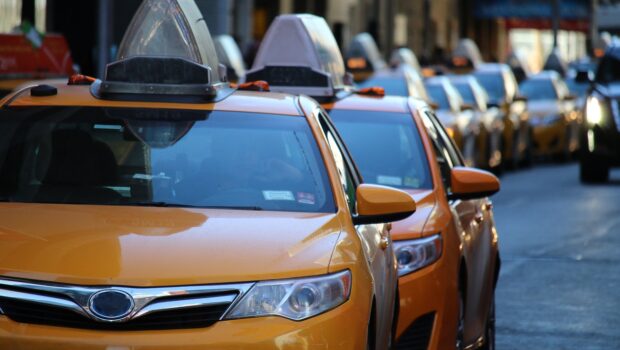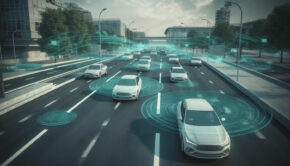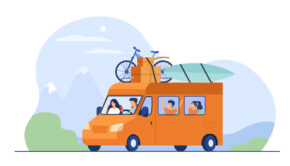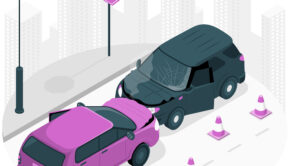New Ways Rideshare Companies are Protecting Their Customers
A number of innovations and updates have swept through the rideshare industry to protect customers. This includes conducting more rigorous driver screening and improving en-route protective services, for example, by looking out for unusual stops and providing quick and discreet access to emergency services. At initiation, rideshare companies focused on efficiency and ease. As more and more people used rideshare services, safety became a top concern for passengers.
Rideshare companies have responded to safety concerns by continually introducing new technology to protect people at different stages of the ride.
Annual Driver Screening and Ongoing Monitoring
After several reports of sexual assault during rides, rideshare companies restructured their hiring, approval, and monitoring practices. For instance, since introducing new technology to screen driver records regularly, Uber has deactivated more than 40,000 drivers.
Before driving with rideshare companies, prospective drivers undergo multi-step screening checks for issues like:
- Violent crime
- Alcohol and drug-related offenses
- Driving violations
The drivers that pass these background checks continue to be screened every year. If the checks reveal any sexual offenses, violent crimes, or other disqualifying offenses, the drivers are forbidden from driving on the rideshare platforms.
Ongoing Monitoring
Drivers are continuously monitored in various ways throughout the year. When the companies receive notifications of offenses committed by active drivers, they review them to determine whether the drivers should be deactivated.
Passengers can rate drivers after a trip. Rideshare companies can deactivate drivers who get low ratings repeatedly. Drivers are periodically asked to take photographs of themselves. These are matched against their on-file identification to ensure the right person is driving the car. Assuming another person’s identity is not allowed.
Sharing Deactivated Drivers List
Lyft and Uber recently announced that they would be sharing information on the drivers that have been deactivated from their platforms for serious incidents. Under the Industry Sharing Safety Program, the companies will share information about driver deactivations resulting from sexual assault, physical assaults that led to a fatality, and other serious safety incidents.
The goal of the program is to enhance the entire industry’s safety further and equip ridesharing companies with crucial information to help them protect customers. Sexual assault is unlikely to show up as often during driver screenings because of the crime being drastically underreported. The information shared will help the companies enhance their screening capabilities. Other transportation companies will be allowed to join the program.
HireRight, a workforce solutions provider, will collect the data from the individual companies and manage, match, and share the information between the companies. In addition, HireRight will ensure each rideshare company abides by industry standards and best practices informed by the NSVRC (National Sexual Violence Resource Center) taxonomy and experts in the sexual assault prevention field.
911 Assistance
In an emergency, every second counts. Additionally, speed and accuracy are vital. The leading rideshare companies recognize these facts and now have an in-app emergency button. When someone feels that he or she is in an urgent situation when riding, he or she can discreetly text or call emergency services without leaving the rideshare app.
The app can digitally share certain trip details with the 911 dispatcher. These may include:
- The person’s real-time location
- Vehicle information
- Details of the driver
These details help the emergency dispatcher send help faster.
By being able to choose between discreetly texting or calling emergency service providers, passengers can opt for the option that is safest for their emergency. The time saved by dialing directly from the app instead of having to switch to the call screen, which can be slowed down by GPS functions, can be a lifesaver.
Predicting When Customers Need Help
Rideshare companies have built technology that looks out for people during rides. Through GPS data and sensors, the companies detect if something unusual happens during a trip. For instance, a passenger veering unusually off course or a ride having stopped too soon or for a long period can be flagged by the apps. When the apps alert the companies of such instances, they can reach out to customers to see if they need help, for instance, after getting hurt in a crash that has caused the long stop.
Providing Relevant Information
Rideshare companies also support safe trips by providing customers with relevant information about their rides. Rideshare apps nowadays include the car make and model along with the license plate number for added security. Users get prompts that encourage them to crosscheck the details of the car to verify that the ride is from the right vehicle.
Phone Number and Address Anonymization
There have been several incidents in the past stemming from drivers accessing rider addresses. That led to rideshare companies introducing address anonymization. The feature conceals a user’s dropoff and pickup addresses in the driver’s history.
If a user needs to contact a driver before arrival, the rideshare apps also mask the user’s phone number. The driver cannot see or save a user’s phone number, so users can rest easy knowing they do not have to worry about revealing their personal details to strangers.
Share Trip Reminder
Rideshare companies have had in-app trip sharing features to allow passengers to share their route with family or friends. The Uber app now reminds users to share their trip details with the people they have designated as Trusted Contacts during every ride. Share My Trip shares vehicle information, driver’s first name, and the user’s map location with loved ones in real-time. Night-time-only sharing is also an available option.
The safety features that rideshare companies have innovated help customers stay safer and ride with more confidence. Nevertheless, customers too have a role to play to enhance their safety during rides. They are recommended to confirm their car and driver before getting in and choose to sit in the back seat. Always wearing seatbelts is effective in preventing injuries to crucial parts of the body.
Cover Image from NeedPix















